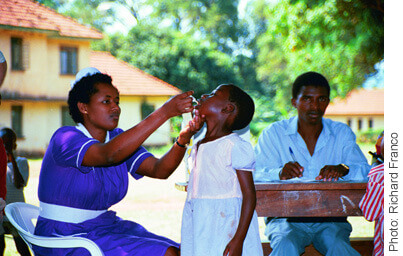Ashley BennettGHTC
Ashley Bennett is a Policy and Advocacy Officer at GHTC.
Congress is heading for its July 4 recess next week, having made a few incremental steps toward a fiscal year (FY) 2014 budget for the federal government—including
releasing spending levels for several agencies and programs that support global health and research efforts.

This pattern should sound familiar, as recent appropriations cycles have seen similar cavernous differences between the House and Senate. And as we know very well, the threat of budget sequestration has not been enough to bridge the gap. These huge disparities will make it extremely difficult for policymakers to agree on a final budget level for the government, meaning that we are almost certainly headed for another continuing resolution to keep the government open past September.
There are some positive signs on the policy side of the appropriations saga. Both the House and Senate included report language in recently passed appropriations bills that would improve the US Food and Drug Administration’s (FDA) engagement in global health by boosting its global partnerships and ensuring its ability to review and license new global health technologies for all neglected diseases. Language was also included in the House’s version of US Department of Defense legislation promoting the development of a malaria vaccine, although the full House has not passed this bill yet.
Aside from the Defense and FDA bills, neither the House nor Senate has progressed on appropriations legislation that directly affects global health R&D. Neither chamber has taken up bills for State and Foreign Operations or Labor-HHS. If past years are any indication, it’s very unclear whether this will happen at all.
On a more positive note, the House Foreign Affairs Committee Subcommittee on Africa and Global Health is holding a hearing today to examine the need for new treatments for neglected diseases. As Subcommittee Chair Rep. Chris Smith (R-NJ) stated, “A number of so-called ‘neglected diseases’ receive little attention from researchers in such critical areas as detection, strategies, vaccines, or drug therapies.” Although research into new tools to combat neglected diseases does rely on researcher interest, even more essential to this effort is a strong combination of US government and private-sector funding and support for programs and partnerships that conduct global health research. Still, this hearing is a welcome contrast to potential threats to global health research faced in ongoing budget sequestration and the stalled appropriations process.
Whether through FY 2014 budget negotiations or other legislative mechanisms, Congress should help move this cause forward by protecting US research and product development funding and promoting a comprehensive, thoughtful, and coordinated strategy for global health R&D.